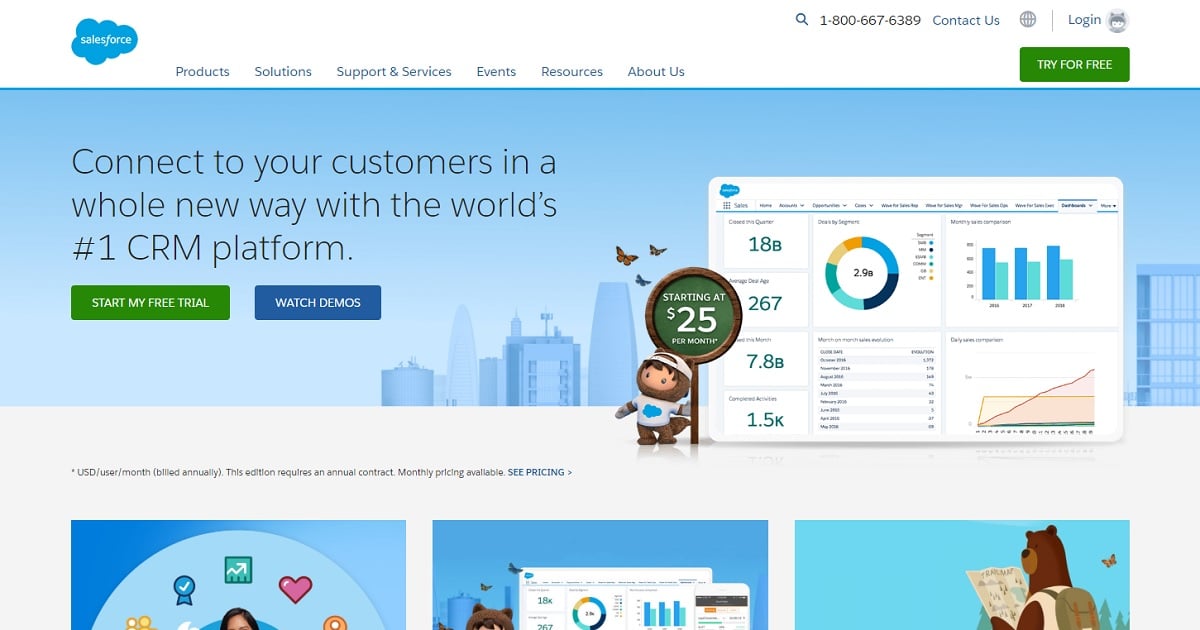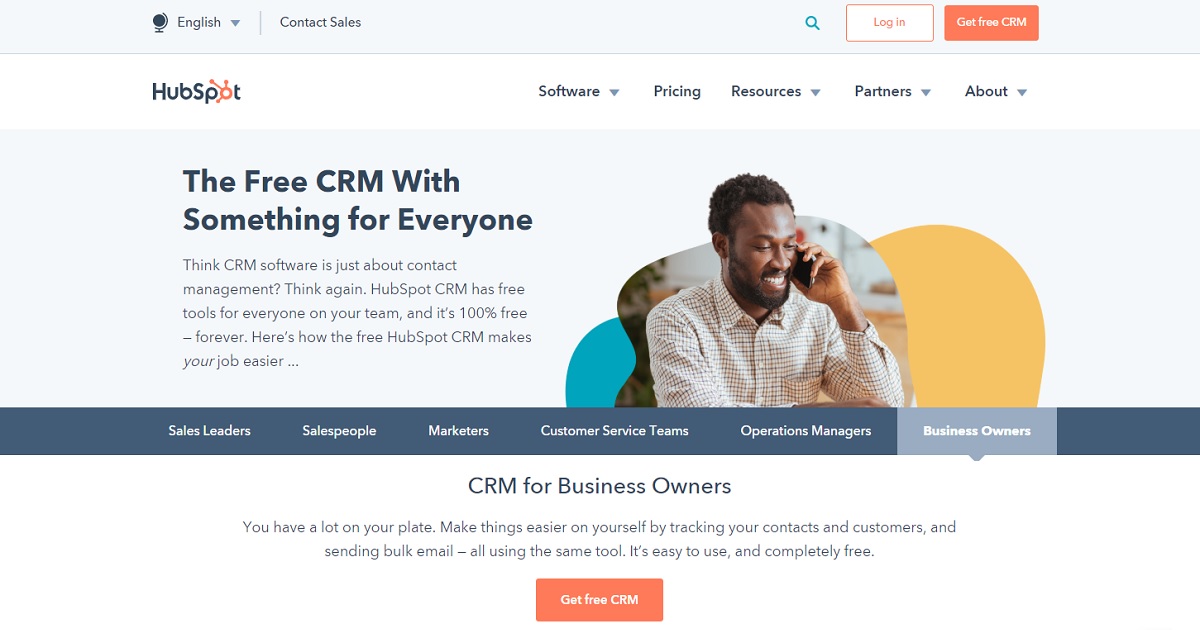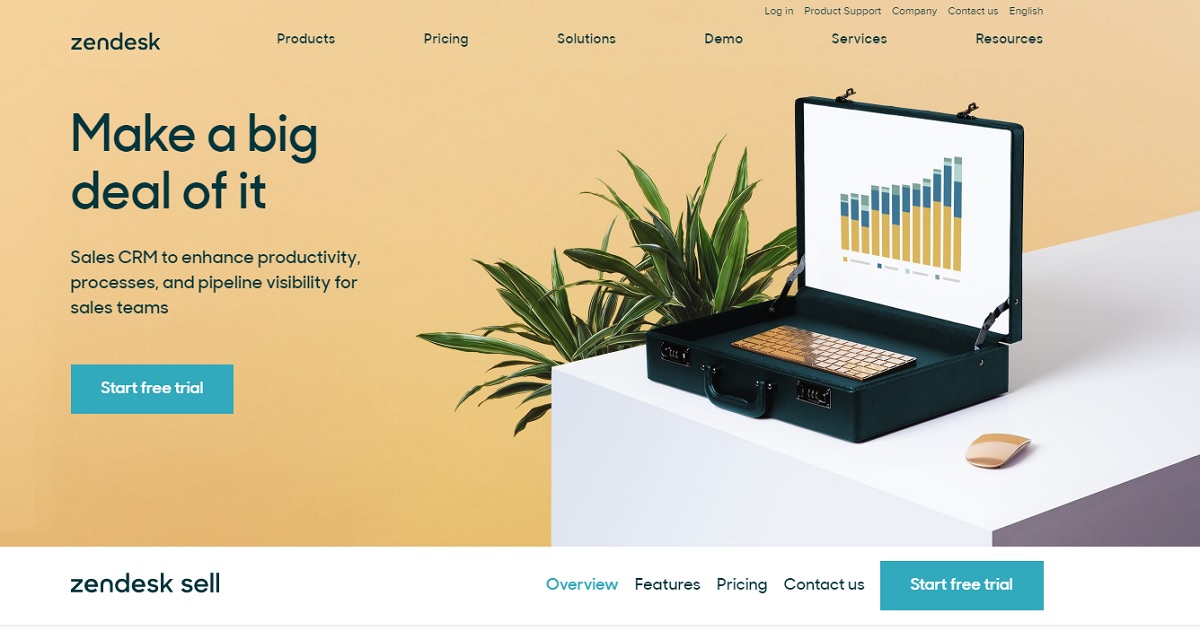3 Easy Ways To Track Annual Sales for Your Small Business
While there are a lot of perks that come with being an entrepreneur, there's also a lot of responsibility and stress. As the daughter of entrepreneurial parents, I've seen first-hand the pressure that comes with not only exceeding financial business goals but tracking your sales year-over-year.
What if I told you that tracking annual sales doesn't have to be stressful or hard? Here are three easy ways you can make the process easy-peasy.
1. Invest In Small Business Software
There's an app or online program for pretty much anything nowadays, sales tracking is no exception. Check out a few quick tools below that will help you identify trends, track important metrics, and ultimately grow your business.
SalesForce & Quickbooks

These are two popular examples that can generate sales reports by month, quarter, and/or year. These programs make it easy to track your sales and progress so your business keeps growing.
HubSpot CRM & Pipedrive

Programs like HubSpot CRM and Pipedrive give you the option to track how much revenue you're generating or losing during a specific time range, while displaying the progress and sales achievements of each salesperson on the team.
Monday.com

If you're all about pretty visuals, you'll like this color-coded online program. Primarily used for scheduling and task management, the platform offers a visually appealing sales management tool with a sales CRM template for easy tracking over time.
Zendesk Sell

A leading tool for sales teams, this program offers a Sales Forecasting tool that automatically tracks multiple data points and generates reports. It helps users track progress and take the guesswork out of having to make predictions yourself. With the use of its built-in prediction abilities, you can get a glimpse of what's to come next.
2. Review Your Platform's Analytics
If you're selling products online, there's a pretty good chance that the platform or marketplace you're using already offers some kind of built-in tracking feature.
Shopify
This platform offers a “Sales Over Time” report that shows the progress of sales over a specific period of time (including weeks, quarters or years, etc.). It features easy-to-compare visuals and charts.
Etsy
The popular handmade site allows sellers to calculate stats revenue by downloading a CSV file of orders for a particular month or year.
eBay
The widely known eBay site offers a free Sales Reports tool that allows sellers to track month-to-month sales growth. It also includes other useful features to help keep sales goals on track while identifying key areas of improvement.
Amazon
If your selling through Amazon.com, the Seller Central page of your seller account includes access to tons of business reports. Track sales for both FBA and merchant-fulfilled orders. Line charts visually show comparisons of how your overall sales compare by week, month, or year.
Alternatively (or additionally), popular Amazon Seller tool Jungle Scout has a sophisticated sales analytics software that identifies trends over time and compares sales metrics to see how different variables – including promotions and refunds – impact sales over a specific period of time.
Square & Clover
Meanwhile, systems like these two (frequently used by brick-and-mortar businesses to take payments from customers) can provide the option to view and export sales summary reports for any point in time, whether it's for the last three days or the entire year.
3. Use Labels
OnlineLabels offers convenient print-from-home barcode labels for easy inventory control. With a barcode system and POS system in place, you can easily track products throughout the buying process.
This can help you determine how much money you have tied up in inventory, etc. You can also use the data to track sales over time and determine how your business is doing.
Learn more about barcoding for small business.
Whether you decide to track sales with an online program or use the analytics from your existing platform, there are several easy ways to keep inventory and business on track. With countless other year-end comparison programs, the perfect fit is out there. List your priorities when it comes to tracking business sales and choose the program that's right for you.
For more useful tips on anything business or labeling-related, visit our content library.



